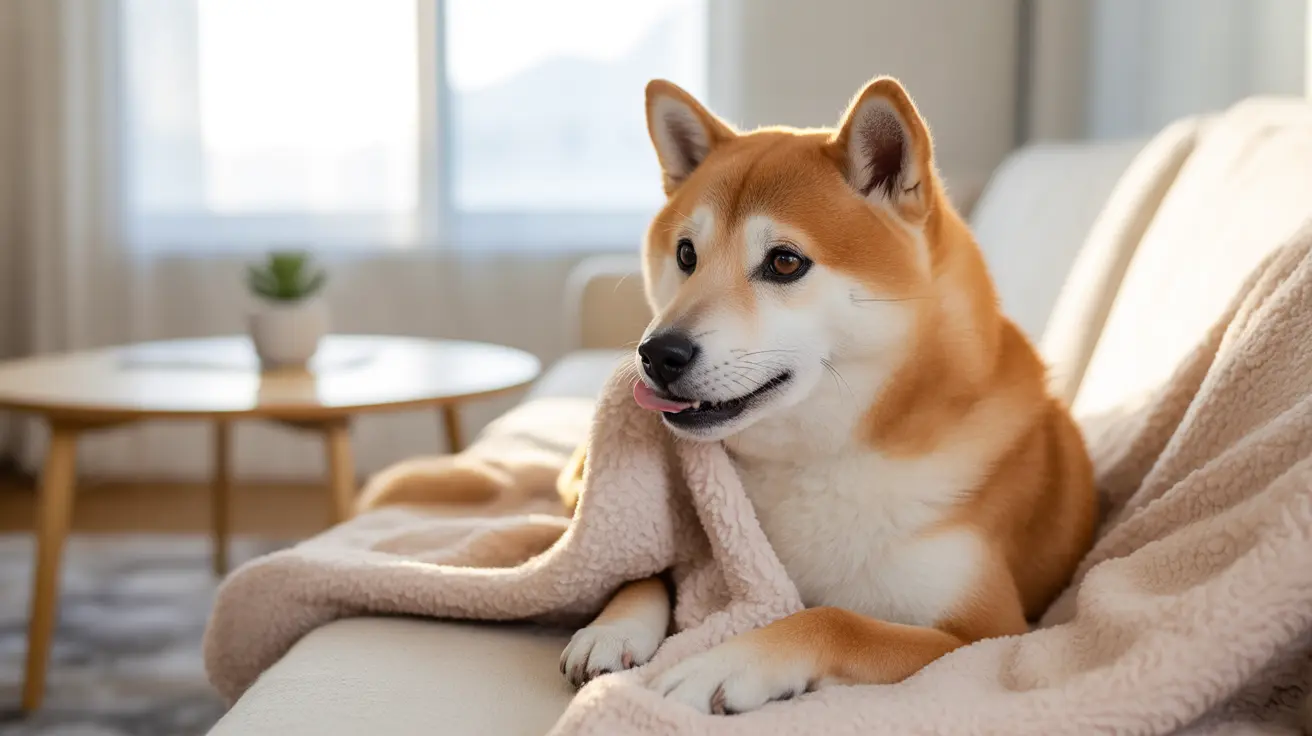Natural Instincts and Developmental Reasons
Dogs are born with natural instincts to explore their world through their mouths. This behavior traces back to their wolf ancestors, who used their mouths for everything from hunting to showing affection. When it comes to blanket nibbling, several instinctual factors come into play:
Puppy Development and Teething
Puppies commonly nibble on soft objects like blankets during their teething phase, which typically occurs between 3-6 months of age. The soft texture provides relief for their sore gums and helps soothe the discomfort associated with new teeth emerging.
Comfort Seeking Behavior
Many dogs, especially those weaned too early, may develop a habit of nursing on soft materials like blankets. This behavior, known as comfort sucking, can persist into adulthood as a self-soothing mechanism.
Emotional and Environmental Factors
Anxiety and Stress Relief
Dogs often turn to blanket nibbling as a coping mechanism for anxiety, stress, or environmental changes. The familiar texture and scent of a favorite blanket can provide comfort during challenging situations, such as:
- Separation anxiety
- Thunder or loud noises
- Changes in routine
- New environments
Boredom and Lack of Stimulation
Insufficient mental and physical stimulation can lead dogs to seek entertainment through blanket nibbling. This behavior often indicates a need for more exercise, interactive play, or engaging activities.
When to Be Concerned
While occasional blanket nibbling is usually harmless, certain signs may indicate a need for veterinary attention:
- Excessive or compulsive nibbling
- Swallowing fabric pieces
- Sudden onset of intense nibbling
- Signs of oral discomfort
- Accompanying behavioral changes
Solutions and Prevention Strategies
Positive Redirection
Instead of punishing the behavior, offer appropriate alternatives such as:
- Durable chew toys
- Interactive puzzle toys
- Frozen treats for teething puppies
- Special "comfort" blankets designed for dogs
Environmental Enrichment
Create an engaging environment that satisfies your dog's natural instincts:
- Regular exercise sessions
- Training activities
- Rotating toy selection
- Supervised social interaction
Frequently Asked Questions
Why do dogs nibble on blankets even when they are not puppies?
Adult dogs may nibble on blankets for comfort, stress relief, or out of habit. This behavior can be particularly common in dogs who were weaned too early or experience anxiety.
How can I tell if my dog's blanket nibbling is due to teething or anxiety?
Teething-related nibbling typically occurs in puppies between 3-6 months old and may be accompanied by drooling and visible tooth development. Anxiety-related nibbling often occurs during stressful situations and may be accompanied by other nervous behaviors.
What risks should I be aware of if my dog chews or swallows blanket pieces?
Ingesting fabric can lead to serious gastrointestinal blockages requiring emergency veterinary care. Monitor your dog's blanket interaction and remove damaged items immediately.
How can I stop my dog from nibbling on blankets without causing stress?
Focus on positive reinforcement by redirecting to appropriate toys and rewarding good behavior. Never punish blanket nibbling, as this may increase anxiety and worsen the behavior.
Are there safe alternatives to blankets that can satisfy my dog's need to nibble or chew?
Yes, many pet-specific products are designed for safe chewing and comfort, including durable rubber toys, dental chews, and specially designed comfort toys with different textures.
Conclusion
While blanket nibbling is often a natural and harmless behavior, understanding its root causes helps ensure your dog's well-being. By providing appropriate alternatives and addressing underlying needs, you can help your furry friend develop healthy habits while maintaining their comfort and security.






